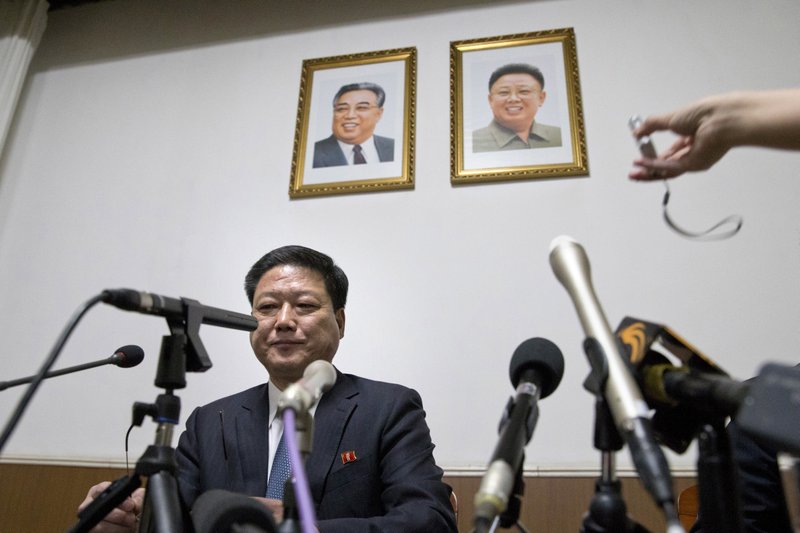TOKYO -- U.S. Secretary of State Rex Tillerson hinted Thursday at a tougher strategy to confront North Korea's nuclear threat but said Pyongyang had no need to fear the United States, a message that suggested Donald Trump's administration is still formulating a clear policy.
In Japan at the start of a three-country Asia tour, Tillerson offered no details about what would comprise the "different approach" to North Korea that the U.S. will pursue. He noted that 20 years of "diplomatic and other efforts" had failed to dissuade the isolated communist government from developing its nuclear program, which he called an "ever-escalating threat."
Speaking alongside Japanese Foreign Minister Fumio Kishida, Tillerson recited the long-standing U.S. demand that the North "abandon its nuclear and ballistic missile programs and refrain from any further provocation."
He said his visit to Asia was designed to "exchange views on a new approach," echoing the comments of others in Washington who have said Trump wants to examine all options -- including military ones -- for halting the North's weapons programs before it becomes capable of developing a nuclear-tipped missile that could reach the U.S. mainland.
But, he added, "North Korea and its people need not fear the United States or their neighbors in the region who seek only to live in peace with North Korea."
State Department spokesman Mark Toner wouldn't specify Thursday what elements the new U.S. approach would entail. But he said Tillerson had sought to emphasize that the U.S. prefers a peaceful solution and that the U.S. was taking issue with North Korea's government, not its people.
Tillerson's trip, which will take him next to South Korea and China, comes as the Trump administration conducts a broad review of U.S. policy toward North Korea. Suggestions by Tillerson and others about a new direction have fueled speculation that the U.S. may put greater focus on military options, which previous administrations have avoided.
Central to the U.S. review is China and its role in any bid to persuade North Korea to change course. China remains the North's most powerful ally.
While the U.S. and its allies in South Korea and Japan implore Beijing to press its economic leverage over North Korea, the Chinese have emphasized their desire to renew diplomatic talks -- a nonstarter for the U.S. under current conditions.
The U.S. and China also disagree over U.S. deployment of a missile-defense system to South Korea. The U.S. says it's a system focused on North Korea. China sees it as a threat to its security.
State Department officials have described Tillerson's effort this week as a "listening tour" as the administration seeks a coherent North Korea policy that is well-coordinated with its Asian partners.
In Tokyo, Tillerson cited North Korea's missile launches this year as evidence of the worsening threat. In a sign of his host's emphasis on showing U.S.-Japanese resolve, Tillerson met with Japanese Prime Minister Shinzo Abe.
During last year's election campaign, presidential candidate Trump called into question U.S. security alliances and called for Tokyo and Seoul to contribute more for their defense. Tillerson, however, stressed that cooperation with Japan and South Korea was "critical."
Information for this article was contributed by Gillian Wong of The Associated Press.
A Section on 03/17/2017

